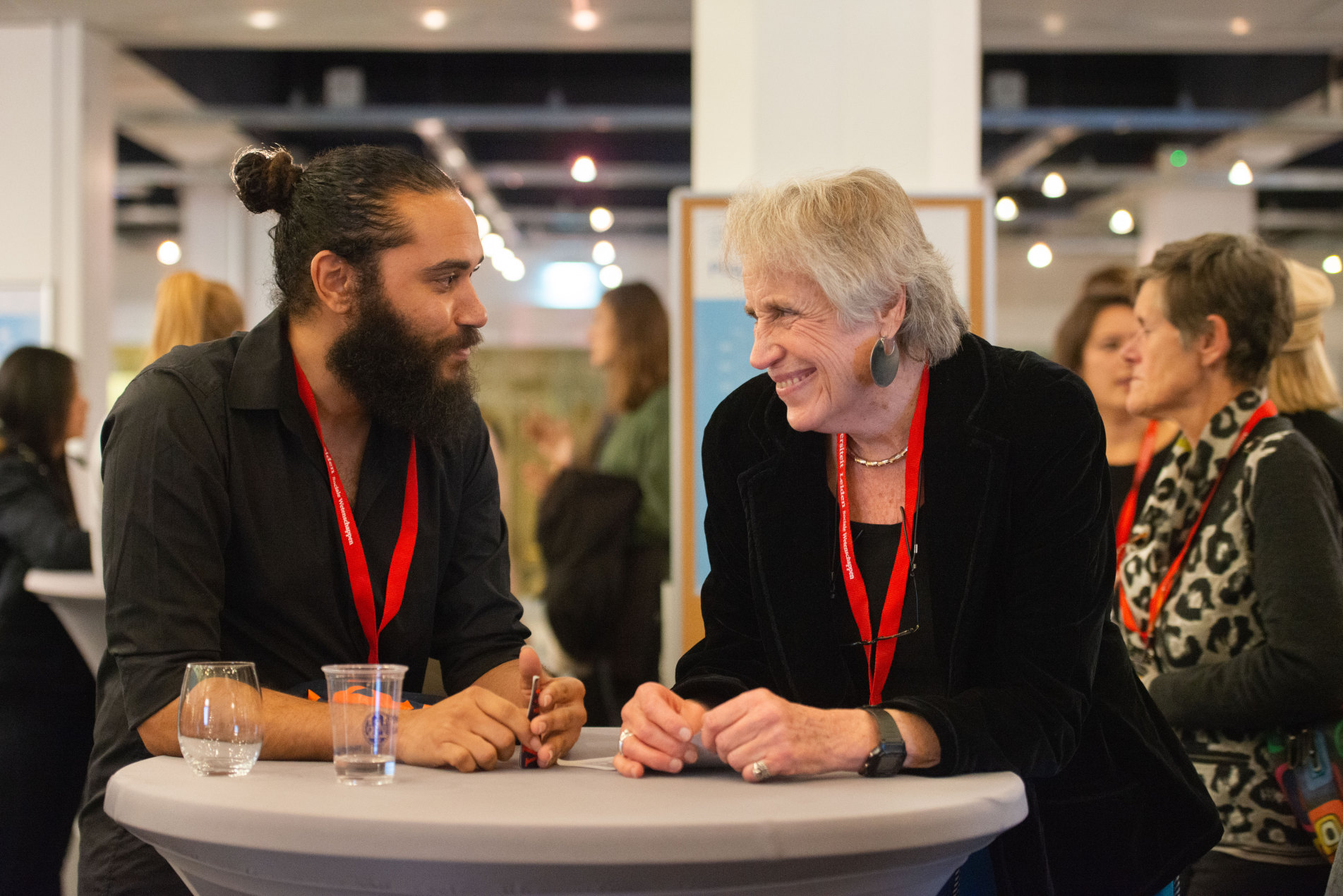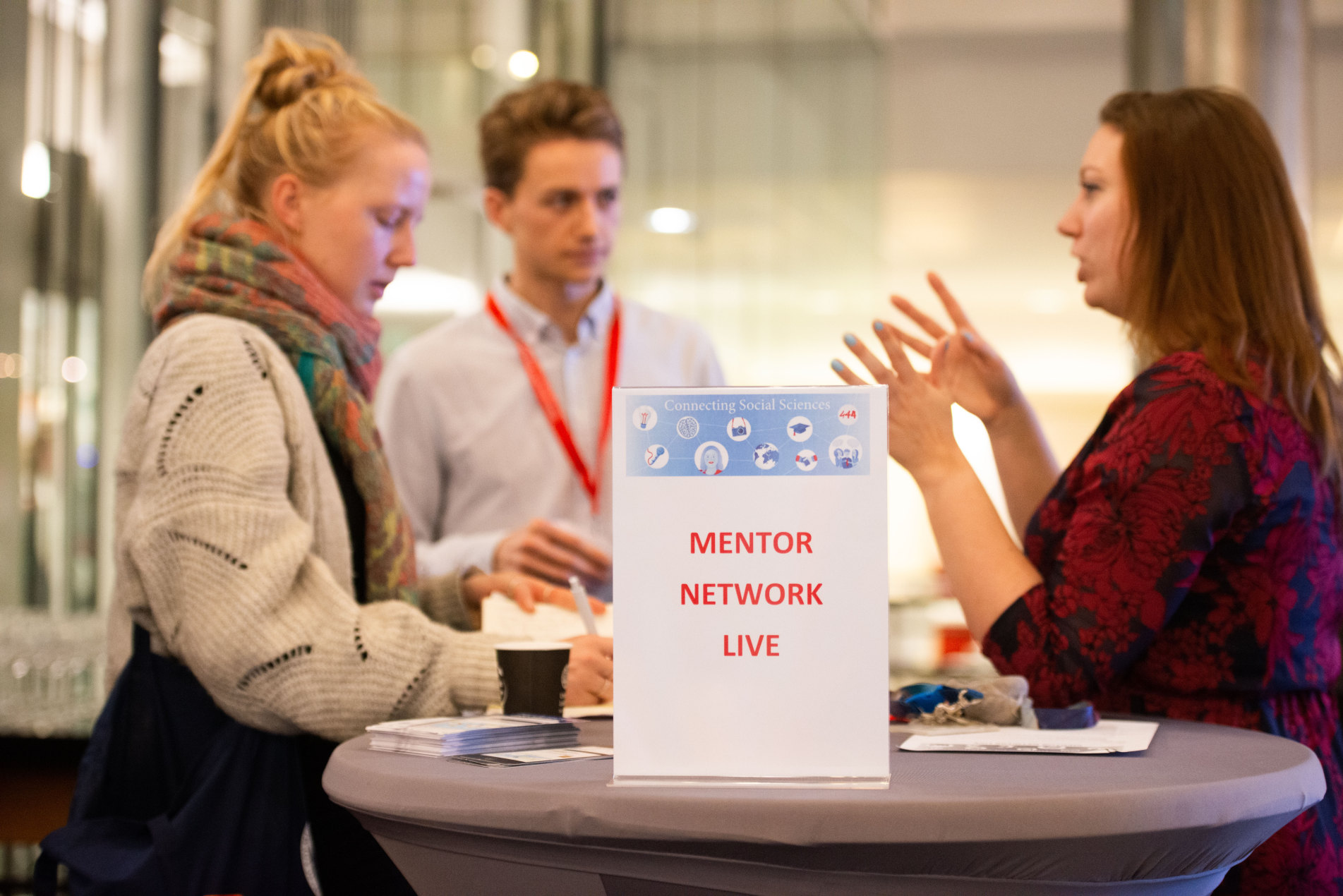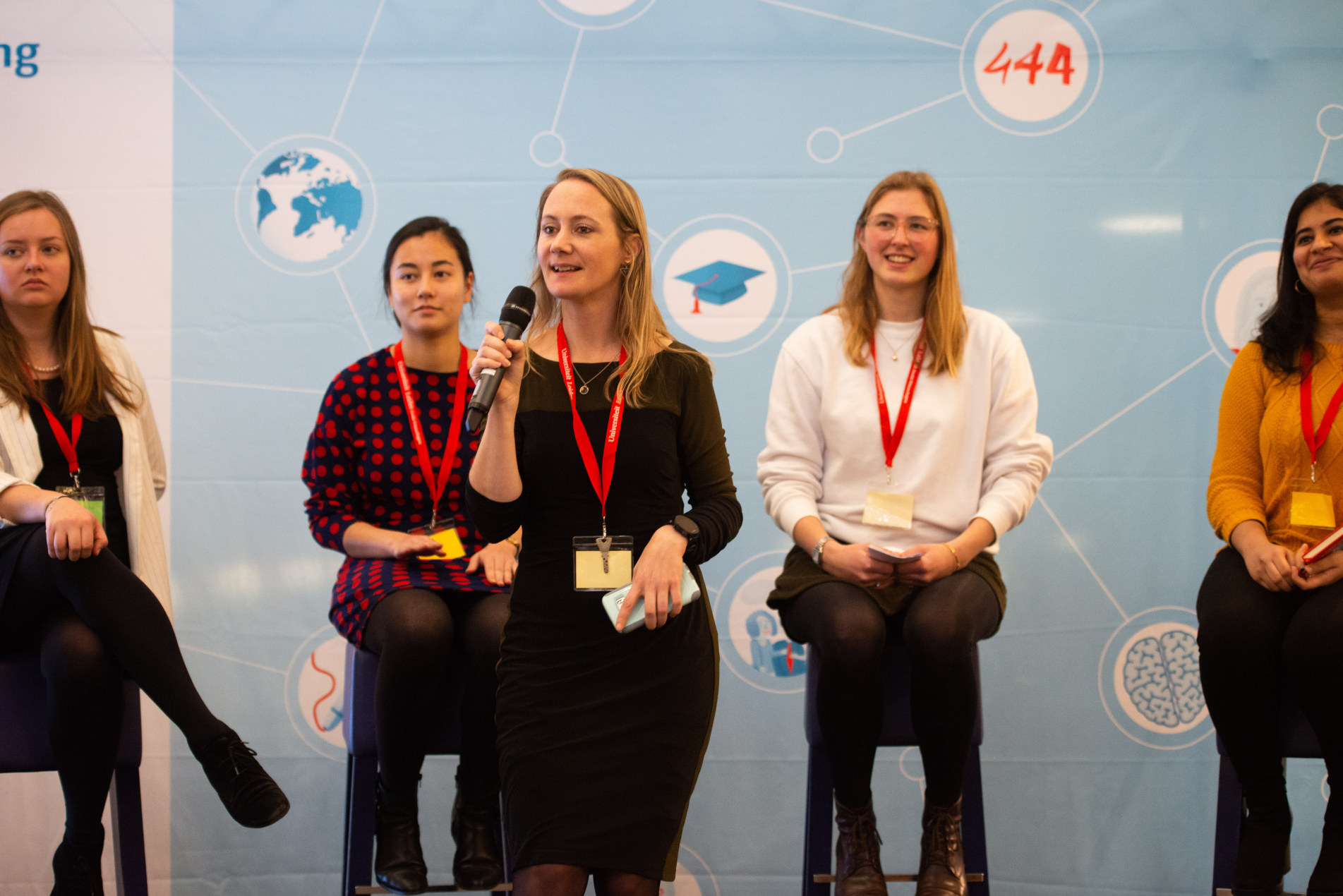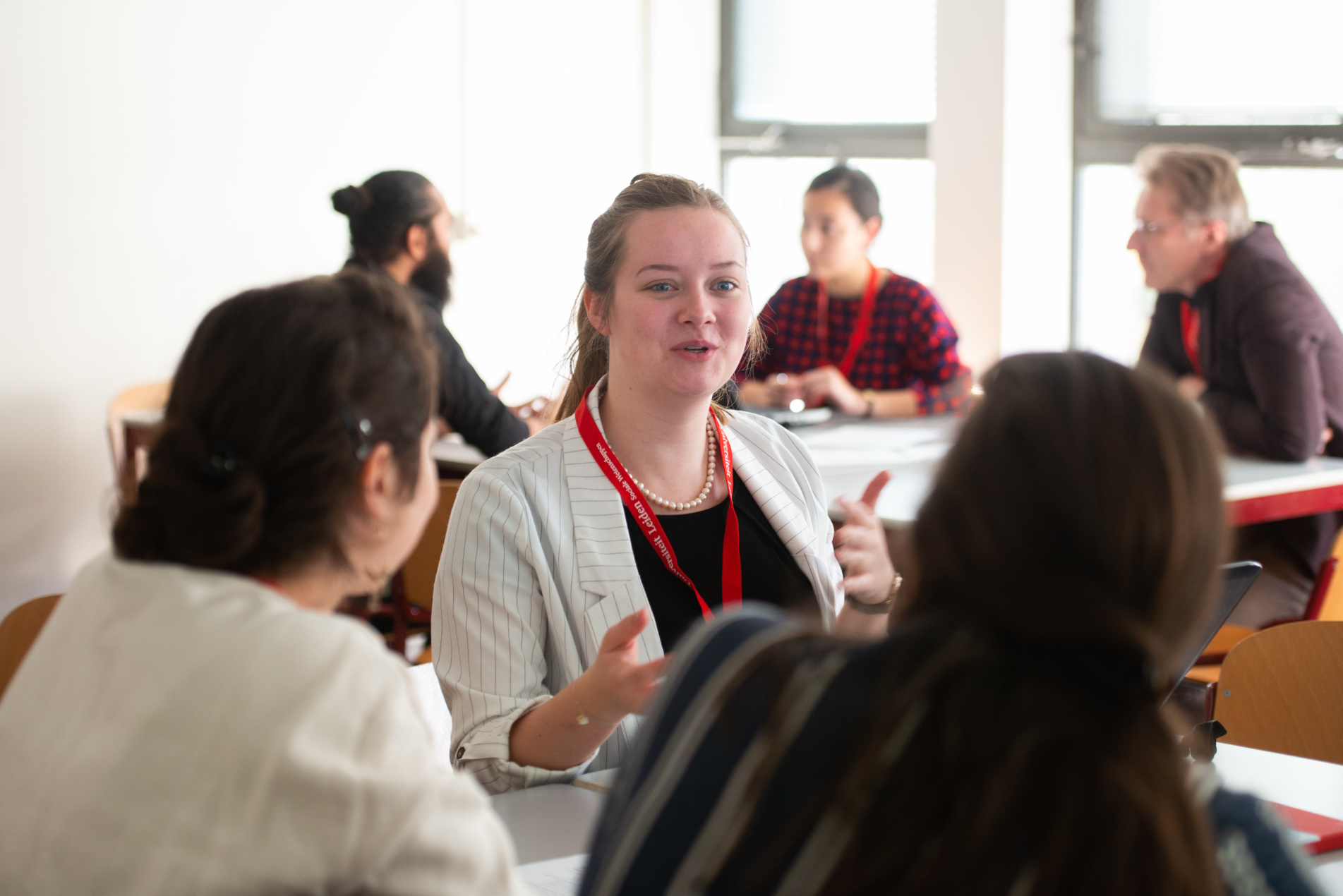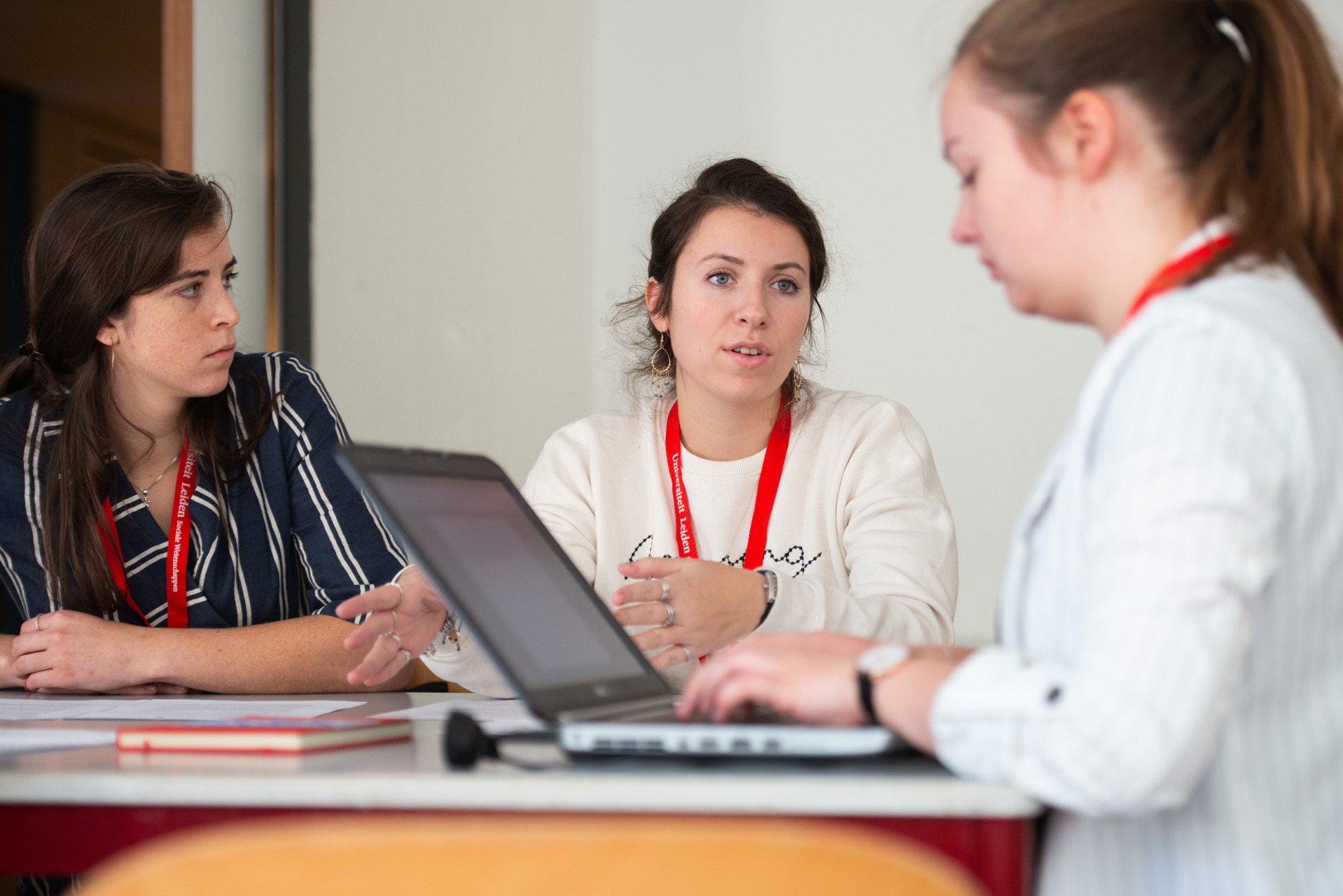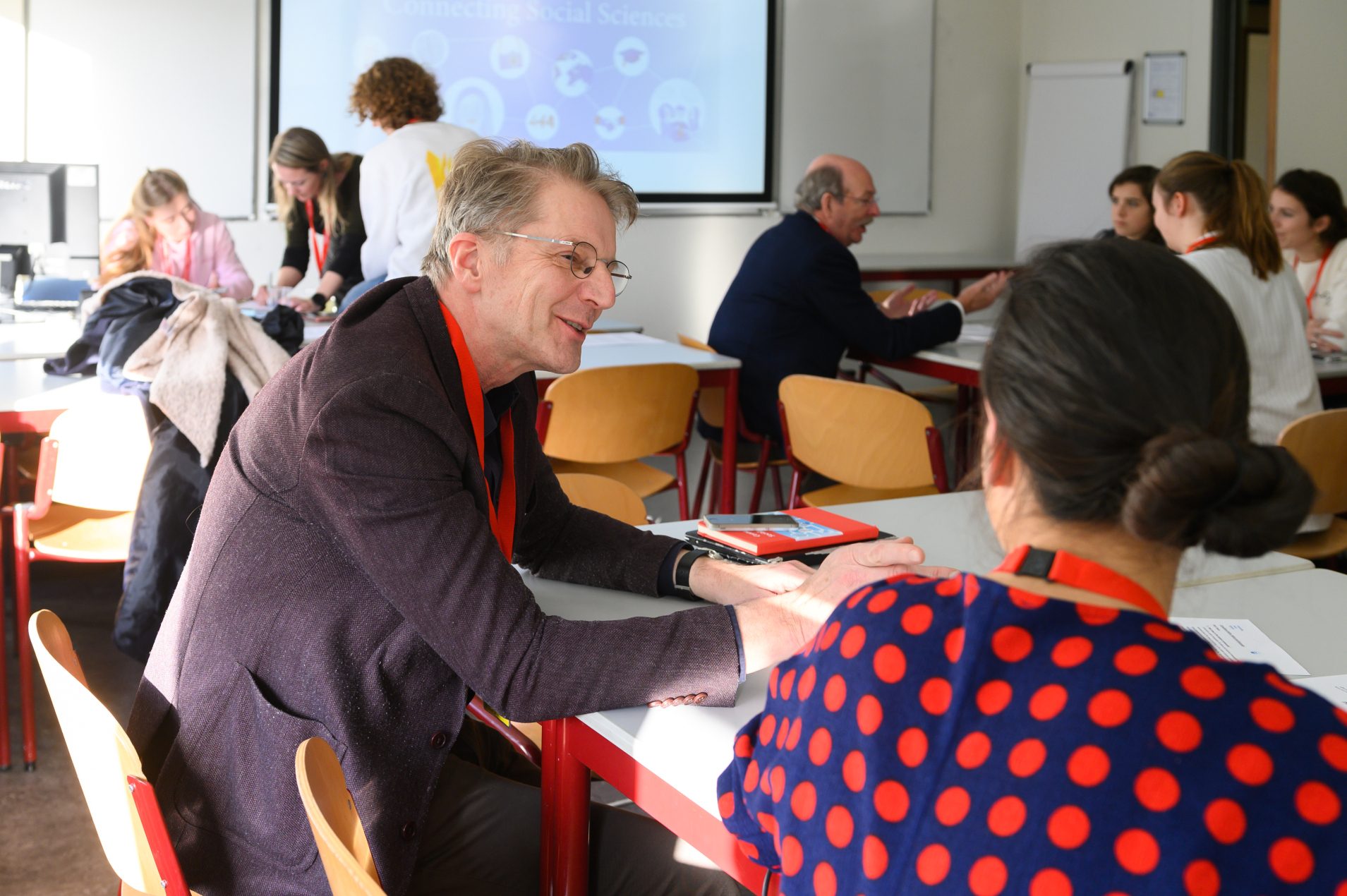
‘We’re not only studying society, we’re creating society’
Students, staff and alumni of the Faculty of Social and Behavioural Sciences joint forces to interact, debate, pitch, and speed date together at the Connecting Social Sciences science festival on Friday 22 November, 2019. After the opening speeches and panel discussion on science and societal impact, the programme offered discussion on societal questions of the future as well as a trip down Memory Lane.

Paul Wouters: Exchanging experiences and creating society
Dean Paul Wouters opened the event by explaining that connecting the social sciences means both basing research and teaching on the burning problems in society and on the wish to bridge disciplinary boundaries and develop more direct exchanges of knowledge and experience between different fields. ‘As a Faculty, we don’t need to bridge a gap between science and society, that gap doesn’t exist. Our research is intimately connected with society, all our researchers are part of society.’
This was also the reason to be enthusiastic about the event. ‘The fact that we communicate with each other, that practitioners, alumni, and students are exchanging experiences, shows what role the university can play and it will also help the university to have a guidance in new directions in which to develop. Today will be a contribution to an important debate. At this Faculty, we are not only studying society, but by studying society we are actually creating society and this is also what you’ll be doing this afternoon.’

Jet Bussemaker: Don’t be afraid of politics and policy
In a short introduction talk, Jet Bussemaker, Professor Science, Policy and Societal Impact, drew the line between the science policy and focus (or lack of it) on societal impact in the 1970’s, 1990’s and the early 21st century. The 1970’s were times of socialisation of science and science shops (wetenschapswinkels), while the 1990’s was a period of retreat, when science moved back from society, paying more attention to fundamental science. The early 21st century brought a new public management and economization of sciences with the idea of return of investment. In Dutch: Kennis, kunde, kassa (knowlegde, skills and cash). ‘I’m glad that more recently, it’s a multiple perspective; science for science, science for society, and science for competitiveness. One is not better than the other, it shows what universities have to offer to society.’
Before calling out the panel members, Bussemaker advised her audience: ‘Don’t be afraid of politics and don’t be afraid of policy briefs of politicians but be involved in it. Don’t let others determine the issues in the policy brief because social sciences have so much to offer. For this conditions are necessary: ‘We need transdisciplinary collaboration – between faculties – , we need to work in teams to understand each other’s disciplinary language. Also to break out our comfort zones. And we need to be rewarded in another way. Not only making careers by scientific fundamental research but also by the combination of education, science, and societal impact.’

Panel discussion: Collaboration and bringing up proper academics
With researchers Lenneke Alink (Education and Child Studies), Thed van Leeuwen (CWTS), Annemarie Samuels (Cultural Anthropology and Development Sociology), and Zsuzsika Sjoerds (Psychology), the panel discussion went deeper into the debate on societal impact and how to connect to different audiences. One of the issues discussed was the different bubbles people live in and the difficulty reaching out to those far beyond our own environment. Alink: ‘The first step is building relationships and trust.’ Samuels agreed interaction to be important ‘also by listening to what matters to people. Not just that all those people will define the research questions, it will show the particular function of what is a problem or an issue that has to be addressed by society. We’re trying to collaborate with researchers from many other societies and contemplate on who sets the research questions.’
Yet, the public distrust in science, sometimes viewed as ‘one opinion among others’, does worry the social researchers. Sjoerds: ‘That even the trust of politicians in science seems to be less can be dangerous. It’s important to emphasise how we get to scientific knowledge, focusing on the methods and try to make it transparent and open. That’s why the Open Science movement is important. But the difficulty is that it’s still preaching to the choir of course.’
Van Leeuwen: ‘The academic reward system stimulated a number of fraud cases and severely damaged the public trust in science as well. In policy, with research integrity closely connected to open sciences, we have some great challenges ahead of us. It relates to the upbringing of academics at a very early stage. Regulations and guidelines will not help. The solution is bringing up people in the way they should behave, in what we all consider a proper academic attitude.’
Listen to the introduction talk of Jet Bussemaker and the panel discussion on Soundcloud:
Science festival
The science festival continued with various interactive lectures by researchers and alumni. Students where supported by other students, staff and alumni in a consultancy battle to prepare their pitches on societal issues as gender neutrality, fake news in the student community, and the concept of truth in general. By public vote Sabrina Carelse, student Education and Child Studies, was crowned best Faculty pitcher. After this many students took the opportunity to meet up with alumni for a career speed date session of the Mentor Network Live session.

Other visitors strolled through the Memory Lane, 444 celebration and the exhibition of the Faculty photo contest FSW Memories, of which at the end of the event the jury winner and audience award where announced: both prizes went to alumni, Michael Koene and Tjalda van Dam. Glasses were raised at the final drinks to a full afternoon of connecting social sciences’ students, staff and alumni.
Author: Sabrina Otterloo
Photos: Monique Shaw and Eelkje Colmjon

